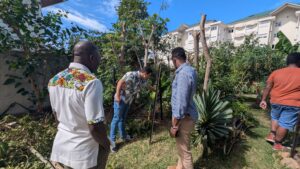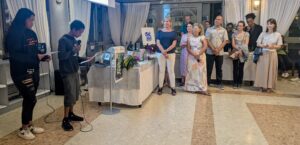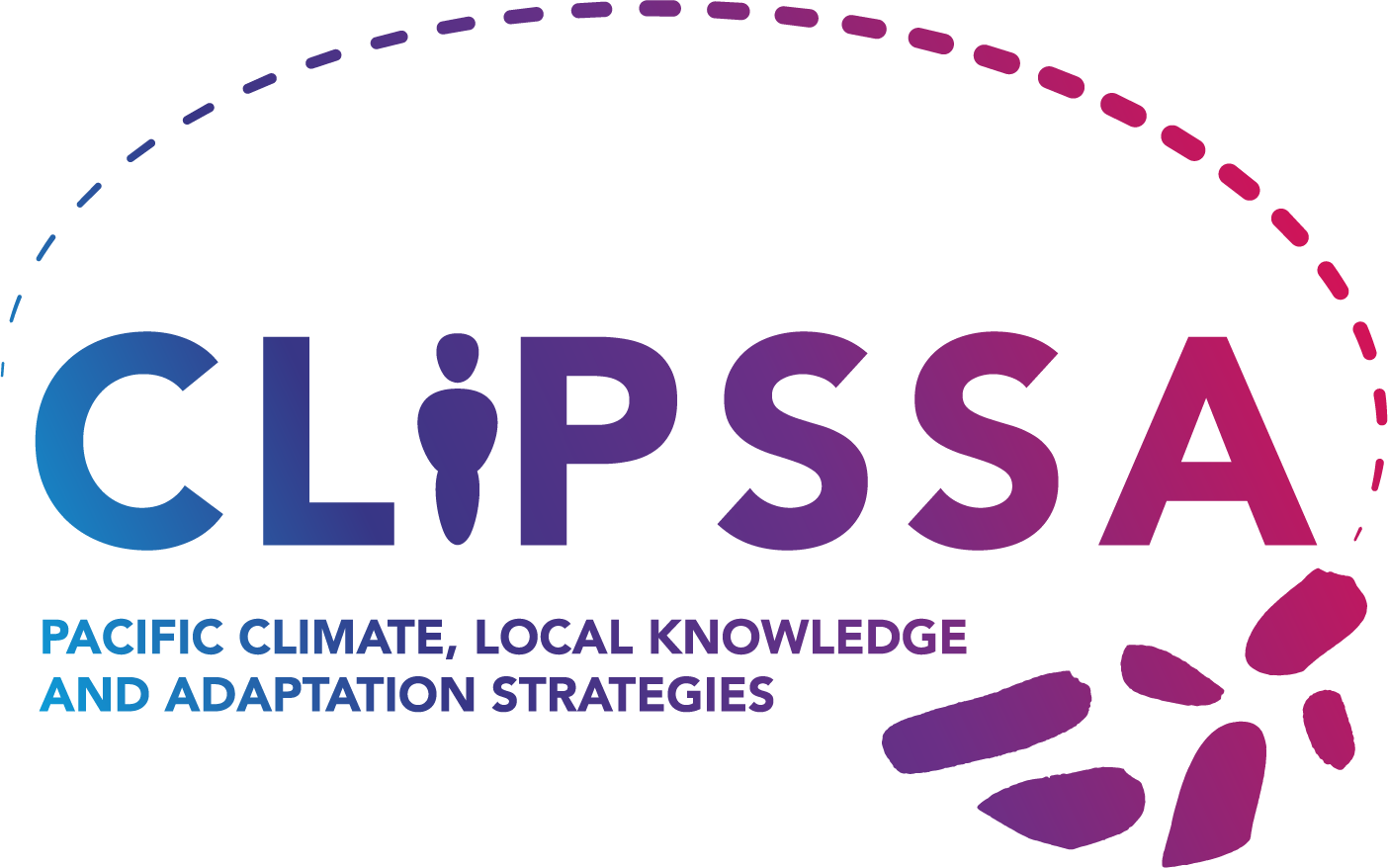A story of sweet and savoury bites, flavours of climate change

Photos crédits : Caroline Agier, Météo France
The CLIPSSA project (Pacific Climate, Local Knowledge and Adaptation Strategies), in collaboration with the hospitality and catering (industry) program of the Auguste Escoffier Vocational High school and the Consortium for Research and Innovation (CRESICA), co-organised an innovative cocktail party, “Clim à table”. Clim à table focuses on food, particularly the iconic tuber crops of the South Pacific such as yam, taro and sweet potato, at the crossroads of climate change and gastronomy. The highlight of this collaboration took place during the inauguration of the Science Festival on Thursday, 2nd October 2025, from 6pm to 8pm, at the school restaurant in Nouméa, New-Caledonia. CLIPSSA enriched the progression of the students in the hospitality and catering program at the Escoffier high school providing opportunities for meetings, exchanges and encounters.
Enriching encounters
To further their knowledge and work, Escoffier students benefited from a visit by CLIPSSA project researchers to their agroforestry garden on the school grounds. It was an enriching encounter where they were able to talk to the scientists and ask questions about their missions and roles within CLIPSSA. It was an opportunity to gain from their expertise and learn a little more about climate change and its effects. It is a way not only to make scientific research concrete and tangible, but also to highlight that some concepts are already familiar to them to to the extent that they experience them on a daily basis (adaptation, resilience, agricultural work, fishing).

Photos crédits : Caroline Agier, Météo France
A touch of intelligence and a dash of creativity
This 2025 edition of of the Science Festival was intelligence, in all its various forms. The ambassador for this edition, Colin de la Higuera, researcher and professor at the University of Nantes, UNESCO Chair in Artificial Intelligence and Education, gave a speech on the use of artificial intelligence in research and learning.

Photos crédits : Julien Mazzoni, Les Nouvelles Calédoniennes
The culinary arts
This intelligence was expressed through the creative work of students training for their CAP Hôtellerie (hospitality certificate) and Terminale BTS (advanced vocational high school diploma) at Escoffier. Indeed, assisted by their teachers , they designed and served a cocktail featuring six savoury appetisers (three cold and three hot) and three sweet bites or desserts. The ingredients were meticulously chosen for their gustatory qualities and their potential to evoke themes related to climate change (e.g. bush fires and extreme heat = smoked yam croquette with venison sausage).
Public speaking
Creativity was certainly on display (The day was marked by creativity), particularly with slam poetry, as students participating in the Clim’ en vers project were able to express their thoughts on the same theme. This artistic discipline can be defined in two ways: writing the text, which allows for freedom and intimacy with words, and reciting it orally. Focusing on mini-scenarios, they volunteered to give rhythm and a voice to the urgency of the climate phenomenon. The floor was given to second- and first-year students in the hospitality and catering sciences section. The involvement of young people in research-action requires recognition of their creativity and the use of the appropriate channel of expression. The CLIPSSA team’s role was to provide the keys, the specific vocabulary and to ensure consistency with the addressed theme.


Photos crédits : Caroline Agier, Météo France
Therefore, art, while serving as form of escape, is revealed to be an excellent medium or vector for science communication and popularisation. Through the Clim’ à table project, kitchens, restaurants and classrooms become genuine laboratories providing models for future experimentation and scientific mediation/outreach initiatives. This approach helps to foster awareness of real social issues, thus contributing to development and research. The resulting feedback and lessons learned will be used to inform public policies concerning climate change awareness.
